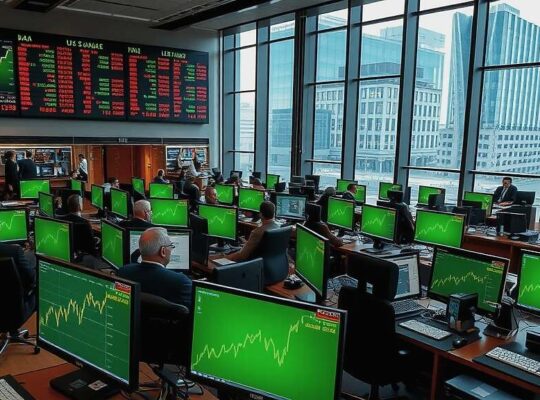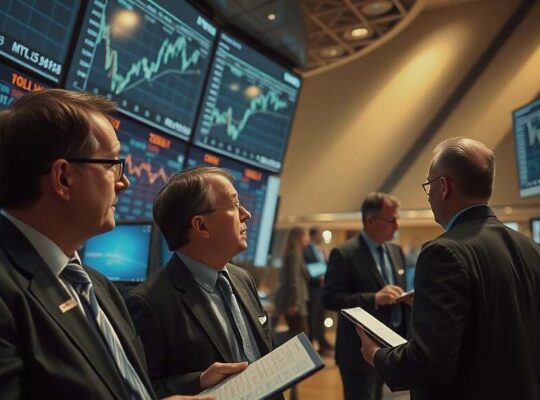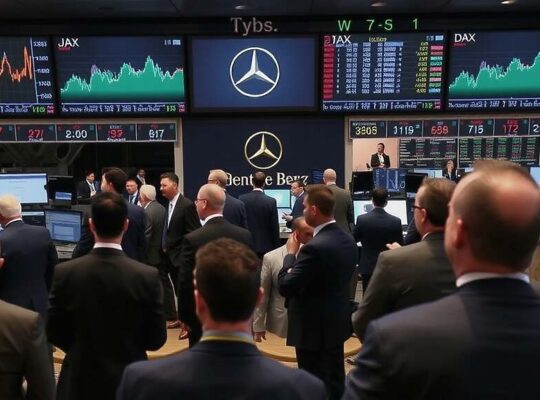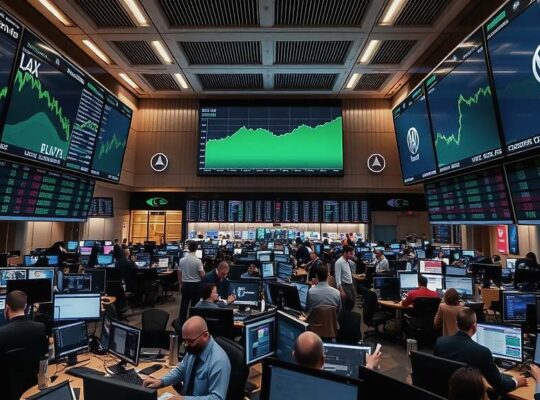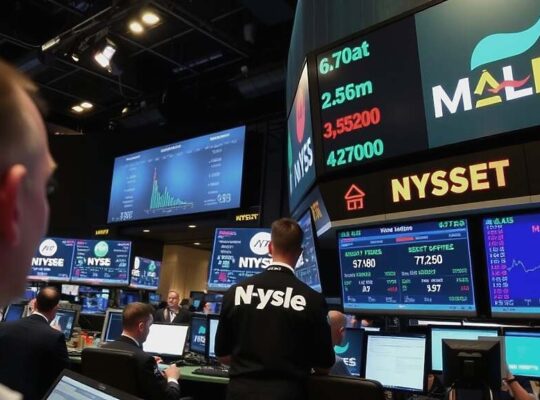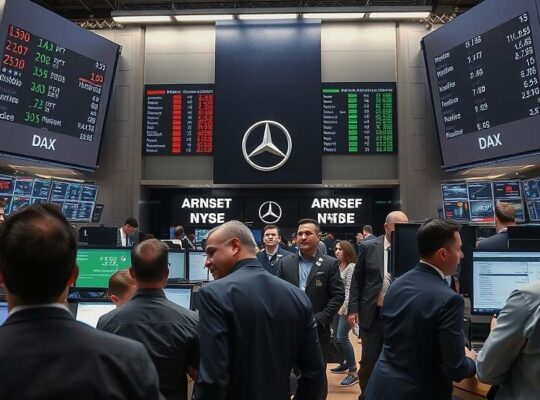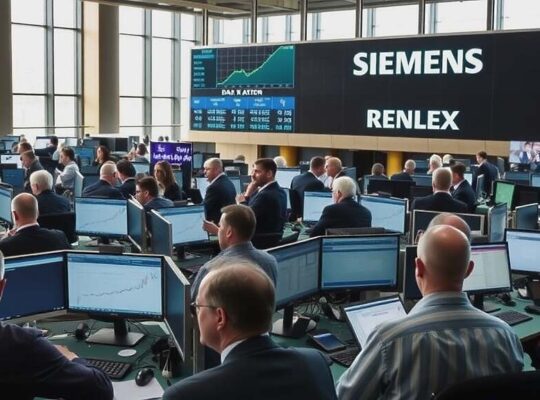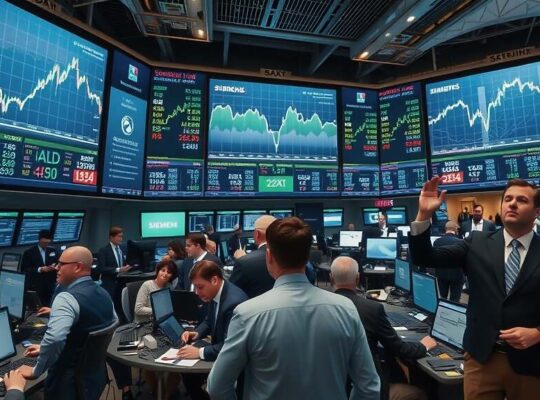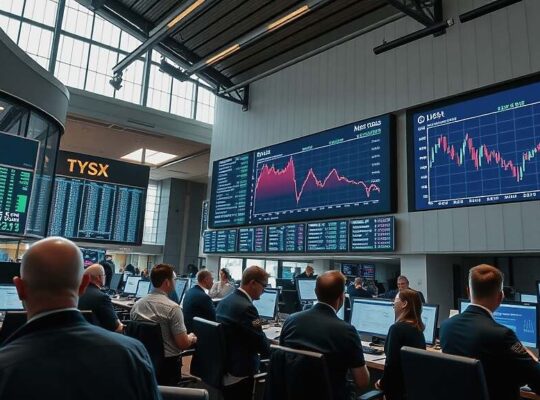The German DAX index saw gains on Thursday, closing at 23,704 points, a 0.3 percent increase compared to the previous day’s close. The index initially opened with a weaker performance but subsequently moved into positive territory before experiencing a partial retracement of its gains throughout the afternoon.
According to market analyst Andreas Lipkow, the European Central Bank (ECB) maintained its policy rate unchanged, as anticipated and reaffirmed its projections regarding inflation over the coming two years. Simultaneously, the ECB revised its growth forecast for the Eurozone upwards, signaling a more optimistic outlook.
Data released from the United States provoked reaction, Lipkow noted. Initial jobless claims came in at 263,000, exceeding market expectations of 235,000. The analyst commented that this increase had been foreshadowed by recent revisions to US labor market data. Despite this, the expectation of interest rate cuts within the market continues to gain momentum.
Bayer, Airbus and Heidelberg Materials were among the top performing stocks throughout much of the trading day, while Qiagen, SAP and Sartorius were at the bottom of the index.
In energy markets, gas prices decreased. A megawatt-hour (MWh) of gas for delivery in October traded at 32 euros, representing a 2 percent decline from the previous day. This price level suggests a consumer price of at least 8 to 10 cents per kilowatt-hour (kWh), inclusive of ancillary costs and taxes if it remains consistent.
Oil prices also experienced a notable drop. Brent crude, from the North Sea, was priced at $66.51 per barrel around 5 pm German time, a decrease of 98 cents or 1.5 percent from the previous day’s closing price.
The Euro strengthened against the US dollar, trading at 1.1737, with one dollar fetching 0.8520 Euros.



